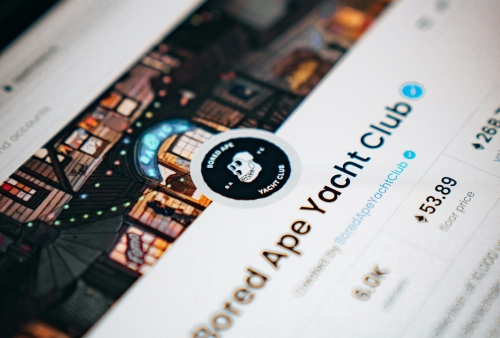
Web3 Development Tools: Essential Resources for Building Decentralized Applications
Mon, Oct 30, 2023, 12:00 AM
Curious about Web3 development? 🌐✨ If you're looking to dive into the world of decentralized applications (DApps) and blockchain development, you'll need the right set of tools to get started. In this post, we'll explore some of the essential resources you'll need to embark on your Web3 journey, from development frameworks to smart contract languages. Let's dive in!
1. Development Frameworks: Truffle and Hardhat
When it comes to building DApps, having a reliable development framework is key. Truffle and Hardhat are two popular choices in the Web3 space.
Truffle is a widely-used development framework that provides a suite of tools for managing and deploying smart contracts. It offers a smooth development experience with built-in support for testing and debugging. Truffle also integrates seamlessly with popular blockchain networks like Ethereum and its test networks.
Hardhat, formerly known as Buidler, is another powerful development environment for Ethereum developers. It offers a comprehensive and extensible set of tools to streamline the development process. Hardhat supports advanced features like automated contract testing, deployment scripts, and console logging for debugging purposes. 
2. Smart Contract Languages: Solidity and Vyper
Smart contracts are the backbone of decentralized applications. To write smart contracts, you'll need to learn a programming language that is compatible with the underlying blockchain network.
Solidity is the most widely-used and battle-tested language for writing smart contracts on the Ethereum blockchain. It has a syntax similar to JavaScript and provides features like inheritance, libraries, and structs. Solidity has a vast ecosystem of tools and resources, making it an excellent choice for beginners and experienced developers alike.
Vyper is another programming language that offers an alternative to Solidity. It focuses on security and simplicity, with a more restrictive and auditable syntax. Vyper's design aims to minimize the potential for errors and vulnerabilities in smart contracts by enforcing best practices and avoiding complex features.
3. Ethereum Development Tools: Remix and Ganache
To interact with smart contracts and test your DApps, you'll need specialized tools that interface with Ethereum and its test networks.
Remix is a powerful web-based development environment that allows you to write, compile, and deploy smart contracts directly from your browser. It provides a user-friendly interface with features like syntax highlighting, code suggestions, and built-in testing capabilities. Remix is an excellent tool for beginners and experienced developers alike.
Ganache is a personal blockchain emulator that creates a local development blockchain environment. It comes with a user-friendly interface and provides a suite of tools for testing and deploying your smart contracts locally. Ganache allows you to simulate real-world scenarios and test the functionality of your DApps in a controlled environment. 
4. Web3 Libraries: Web3.js and Ethers.js
Web3 libraries are essential for interacting with blockchain networks and smart contracts from your DApp's frontend.
Web3.js is the most popular JavaScript library for building Web3 applications. It allows you to communicate with Ethereum-like blockchain networks, send transactions, and retrieve data from smart contracts. Web3.js provides a convenient API for working with accounts, balances, and contract instances, making it easier to integrate blockchain functionality into your DApps.
Ethers.js is a powerful alternative to Web3.js with a focus on simplicity and performance. It provides an intuitive and promise-based API for interacting with Ethereum and compatible networks. Ethers.js offers advanced features like decentralized exchange support, contract factories, and event filters, making it an excellent choice for developers looking for a more modern and streamlined library.
Ready to Build with Web3?
Now that you're armed with the essential tools for Web3 development, it's time to start building your decentralized applications. Remember, learning these tools and technologies will require time and patience, but the Web3 space is full of opportunities and innovations. So, embrace the decentralized future, experiment with different tools, and join the Web3 revolution!
And if you're looking to secure your crypto assets for the long term, check out [**Inherible**](https: //inherible.io), a non-custodial crypto wallet with advanced features like asset designation. With Inherible, you can ensure that your digital assets are passed on to your loved ones when the time comes.
Happy coding! 💻🚀